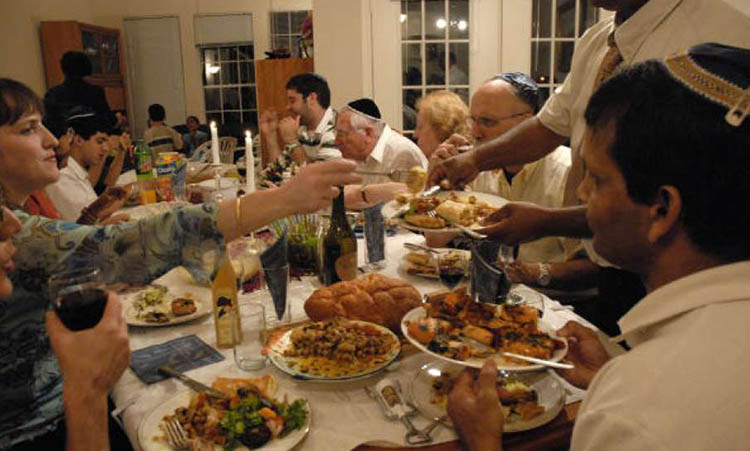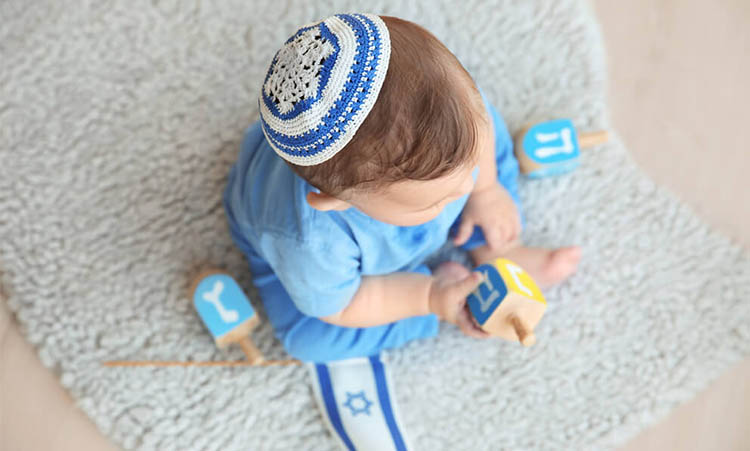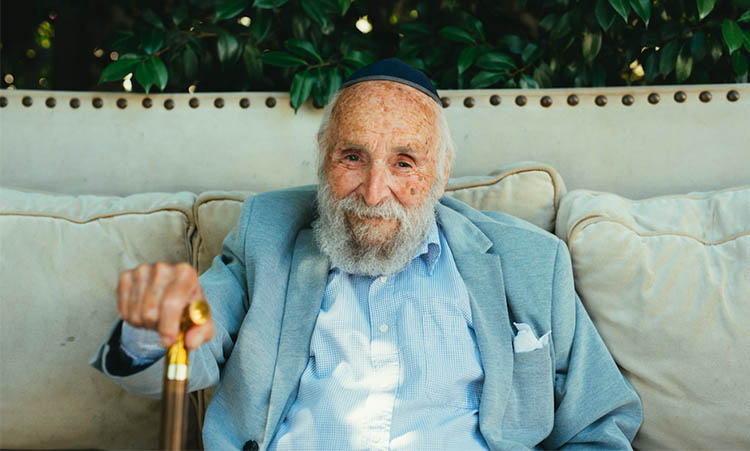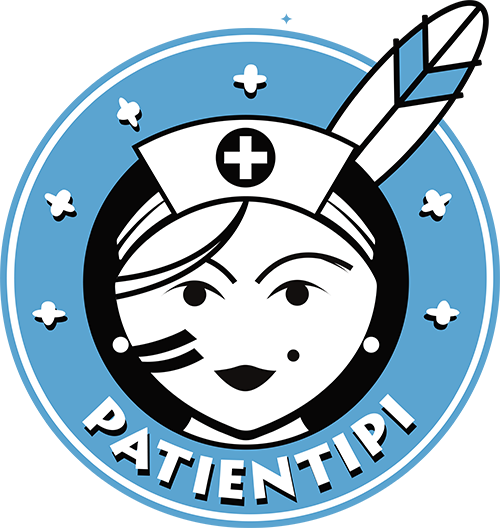Jewish Community
Dear fellow caregivers,
You have a patient of the Jewish faith.
Here is a list of useful information to know in the context of his or her medical care.
General Information
● In Judaism, life is more important than anything else. Jews must do everything in their power to preserve and protect their lives.
● For Jews, it is very important to visit the sick.
● When waking up in the morning, Orthodox Jews should wash their hands and pray (before touching food).
Communication

● In traditional Judaism, women are seen as different but equal to men. Women’s obligations and responsibilities are different from those of men, but no less important.
● Yiddish is no longer as popular as it used to be, although many Jews still speak and understand it.
Beliefs, Practices & Rituals

● Orthodox Jews pray 3 times a day (morning, afternoon and evening).
● According to Jewish law, men and women are separated during prayer.
● Orthodox Jewish beliefs state that when praying on Shabbat (Saturday), the use of electricity as well as working or moving (including carrying objects) should be avoided. Walking and travel are also limited.
● Shabbat begins Friday night at sunset and ends Saturday night, one hour after sunset (it lasts 25 hours). It is a day of prayer, made for resting and cooking elaborate meals. The preparation of the Sabbath usually begins 2 or 3 hours beforehand.
● Following the law of Torah is very important for Orthodox Jews.
● Yom Kippur is the most important holiday of the year. It is a day to “afflict the soul”, to atone for the sins of the past year. Jews refrain from eating and drinking, washing, massaging someone, and wearing leather shoes.
● Boys must be circumcised before they are 8 days old.
Eating habits

● Food for people of the Jewish faith must be kosher. This is a set of rules to be followed, particularly concerning meat: the animal must be slaughtered according to the religious rite. Utensils that have come into contact with non-kosher food may not be used.
● Meat (the flesh of poultry and mammals) cannot be eaten with dairy products, so kitchen utensils that have come into contact with meat cannot be used for dairy products and vice versa.
● Pork and shellfish are prohibited. Only fish with fins and scales may be eaten.
● The meal is blessed before eating it. At the end, a blessing is recited.
● Fasting is common on certain holy days, such as Yom Kippur.
Pregnancy and motherhood

● Abortion is permitted when the mother’s life is in danger. The fetus is considered a part of the mother’s body and can be sacrificed at any time during the pregnancy to save the mother’s life.
End-of-life care

● Life is considered precious. Jews are not allowed to hasten death, even to avoid suffering. Euthanasia, suicide and assisted suicide are forbidden by Jewish law. However, when death is imminent and the patient is suffering, Jewish law allows the artificial prolongation of life to be stopped.
● Death is not considered a tragedy, even when it occurs early in life or due to unfortunate circumstances. Death is a natural process.
● After a person dies, the eyes are closed, the body is laid on the ground and covered. Candles are lit next to it. The body of the deceased is never left alone until the end of the funeral as a sign of respect.
● Most communities have an organization to care for the deceased, known as hevra kaddisha (the holy society).
● Autopsies are discouraged as they are considered a desecration of the body. They are permitted when it can save a life (organ donation) or when required by local law. If performed, the procedure must be discreet.
● In preparation for burial, the body is cleaned and wrapped in a simple linen shroud.
● When a loved one learns of the death of a relative, it is traditional to express grief by tearing their clothing.
● From death to burial, the sole responsibility of the deceased’s loved ones is to care for the deceased and prepare them for burial. This period is known as aninut.
● The deceased must be buried within 24 hours of death. All parts of the body, including bloody clothing and amputated limbs, must be buried with the body. Jewish law prohibits the body from being displayed at the funeral.
● Organ donation and transplantation are accepted in Reform Judaism. Orthodox Jews do not participate in organ donation, because according to the beliefs, the body will not be complete at the time of the resurrection of the dead.
Examples
This section allows us to share experiences. Feel free to share yours with the community.
Sources :
Cleveland Clinic – Diversity Toolkit
Geri-Ann Galanti – Caring for patients from different cultures, 5th édition
